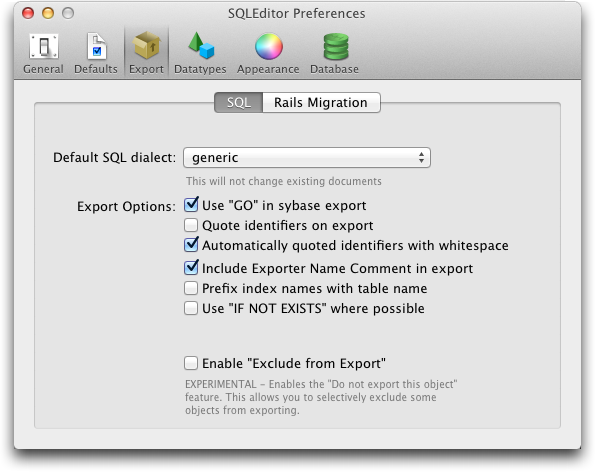
This popup menu allows you change the SQL dialect that is used for new untitled documents.
This option allows you to choose whether you want to include "GO" statements when using the Sybase Dialect.
This option specifies whether object identifers (field names, table names, etc) are quoted in exported
SQL.This is normally a good idea because it means you have more freedom in the names that you use for objects.
This option specifies whether objects with whitespace in them (e.g "Hello World") are automatically quoted.
This is normally a good idea because it means you have more freedom in the names that you use for objects.
This option specifies whether you want the exported SQL to contain a short comment at the top of the file indicating which dialect was used to export it. This is normally useful to readers of the file and has no side effects, but disabling it has no effect either.
This causes index names to modified on export so that they are prefixed with the name of the table they refer to. This reduces name conflicts, however if you prefer to handle this yourself then disable the option.
Use the IF NOT EXISTS form of the create table instruction if this is possible
Some database dialects offer the option to create tables only if they do not currently exist. This prevents errors if the table already exists. However it also means that if the table does already exist then you may end up with a database that contains an old version of the table that isn't replaced.
The default export settings are chosen to reduce the likelihood of export errors. Changing these settings may cause exporting to fail.